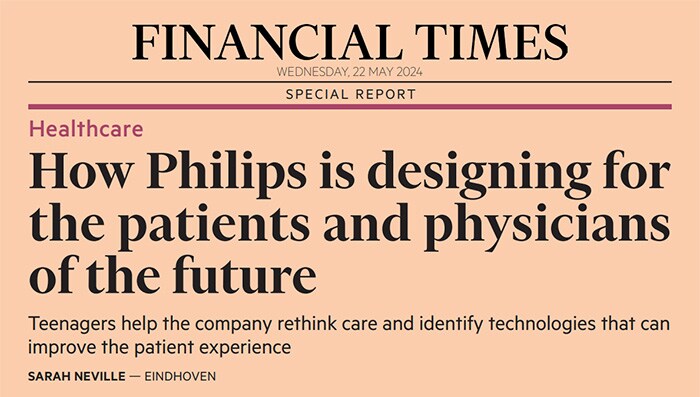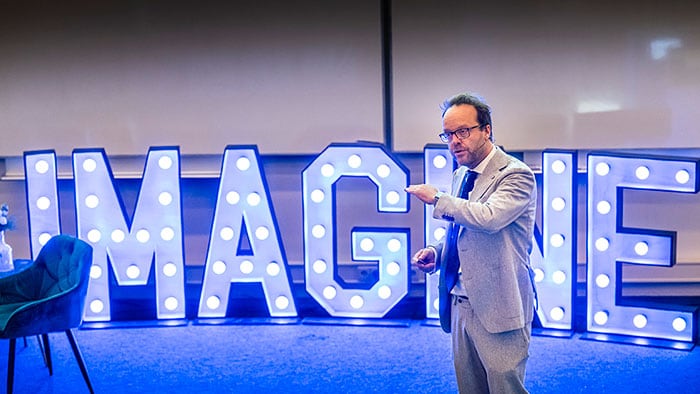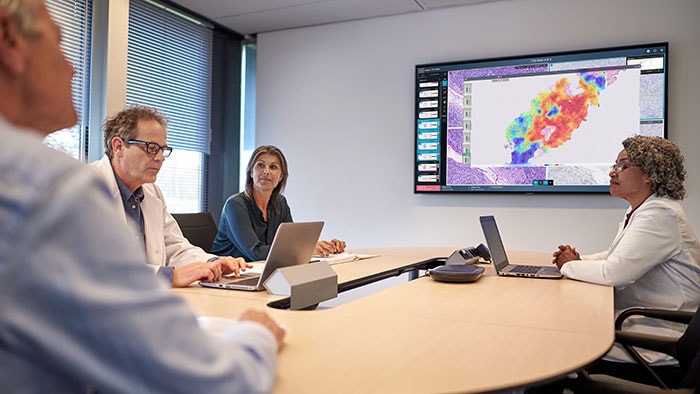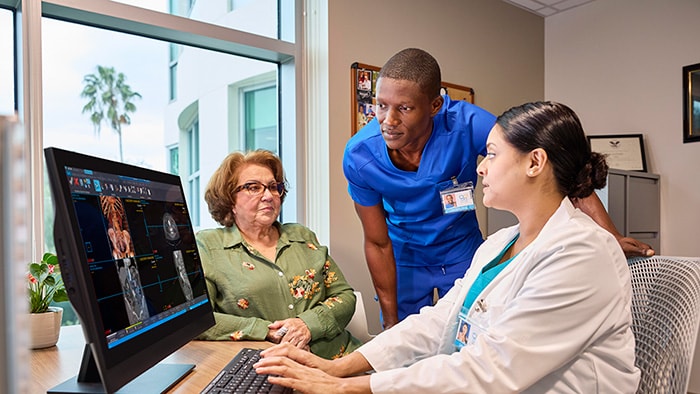A glimpse into the future: the Financial Times visits the Philips Innovation Lab
May 24, 2024 | 3 minute read
In an exclusive feature published in the Financial Times, global healthcare reporter Sarah Neville explores how Philips is helping to shape the future of healthcare. Neville witnessed the company’s innovation approach firsthand as she joined a group of teenagers from Het Huygens Lyceum in Eindhoven the Netherlands, aged 13-15, who had been invited by Philips to help identify technologies that could improve patient experiences. The initiative, which is part of an ongoing series organized by Philips designers, also aimed to understand the future needs of this young generation, which is the first to have spent their entire lives surrounded by digital technologies.
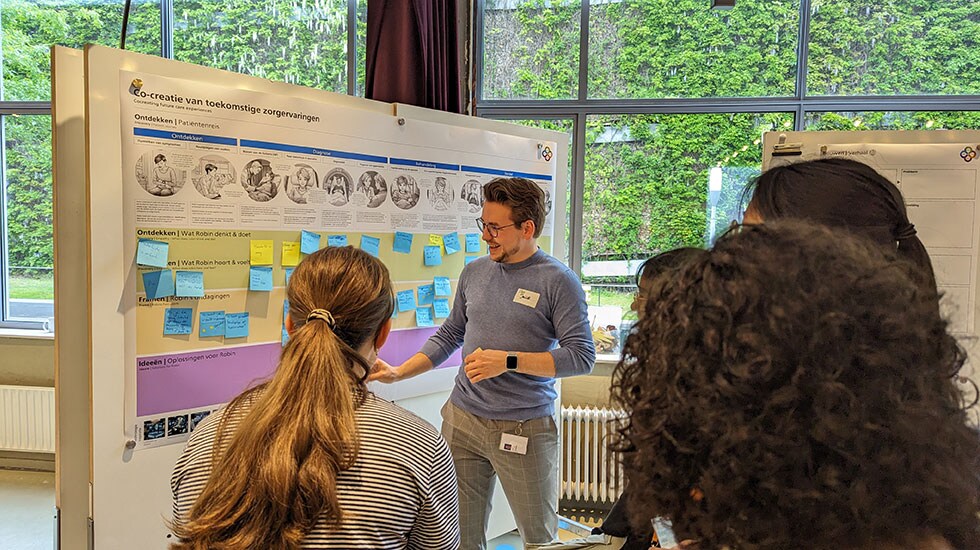
Philips believes that understanding people’s needs is key to impactful healthcare design. As part of its innovation approach, Philips fosters collaboration and co-creation. This people-centered approach allows the company to receive immediate feedback and create solutions that resonate with patients and healthcare professionals.
The session that the Financial Times took part in focused on exploring pain points in young patients’ care journeys, as well as using generative AI tools to envision future solutions. The design team gave the children a hypothetical patient named Robin, who had appendicitis.
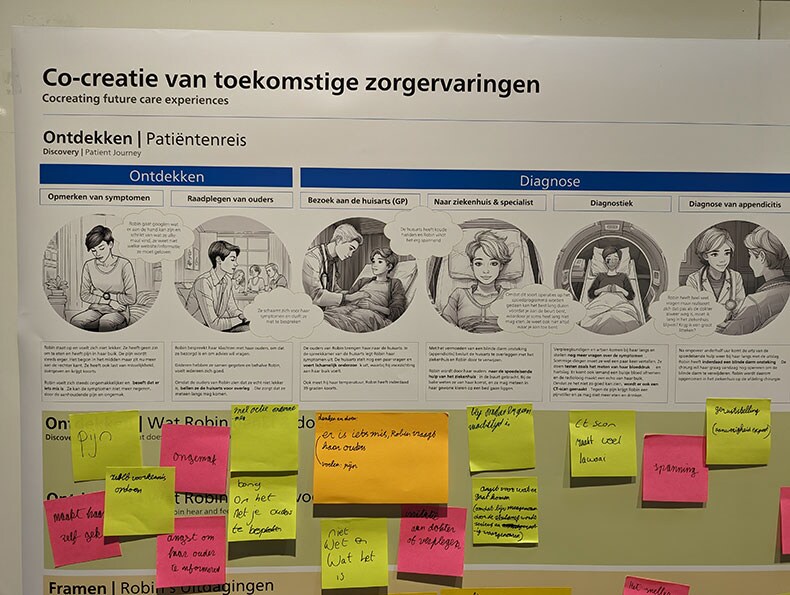
Using AI-generated storyboards, the teenagers discussed each step of Robin’s journey, from diagnosis to recovery. They then came up with ideas that included a care robot powered by generative AI, which could provide real-time answers to any questions Robin had, as well as a robot “cuddle animal” to comfort younger patients. The children then used professional generative AI tools to create detailed illustrations of their ideas.
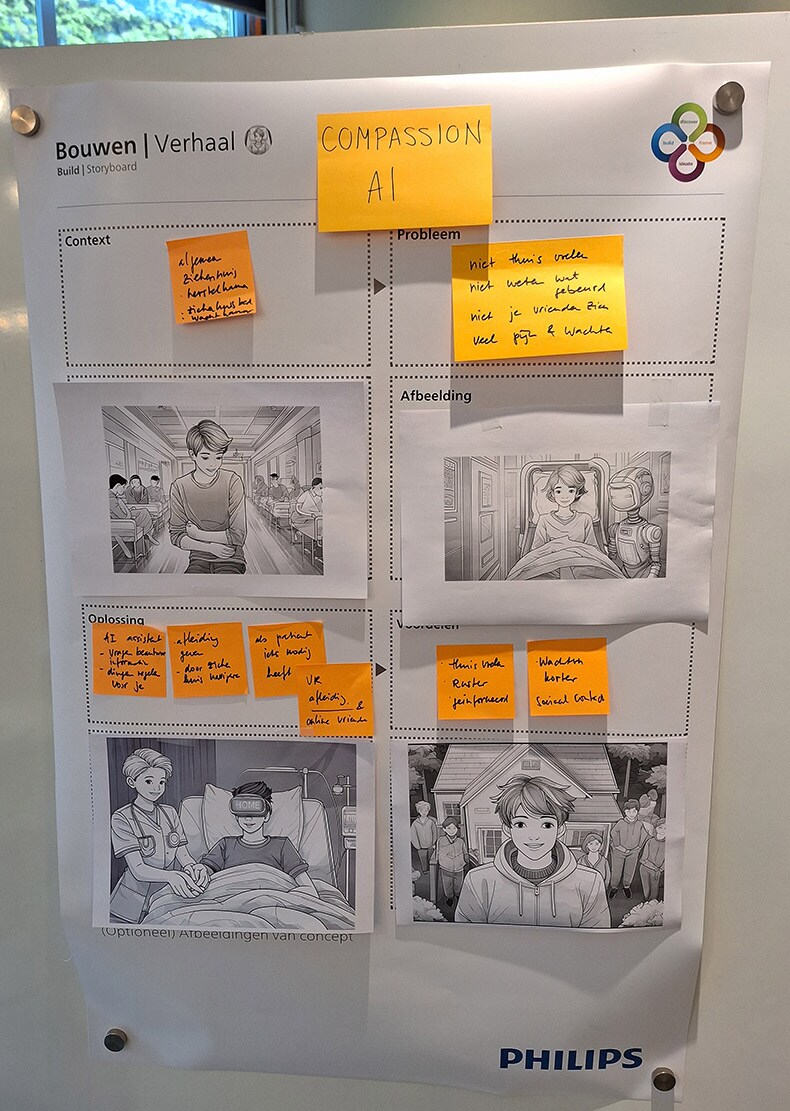
Peter Skillman, the Global Head of Design at Philips, says: “These sessions give us an incredible opportunity to glimpse at the future of healthcare. Since teenagers tend to be the first users of new technologies, it means they’re often happy to try new things out and come up with fresh new ideas.”
Alongside these co-creation sessions, Philips also regularly organizes events where teenagers get to take on the role of physicians. Robert-Jan de Pauw, Philips’ Director of Data-Enabled Solutions, recently took a group of children who were all planning to train to become healthcare professionals into a demo interventional suite, where they could see how physicians carry out medical procedures, such as placing stents or treating the heart.
De Pauw says: “Building a new interventional system can take between seven and a half to 10 years. We believe it’s very important to get the insights of younger people as they are the future users of our solutions.”
Read Sarah Neville’s full story here on the Financial Times website.
